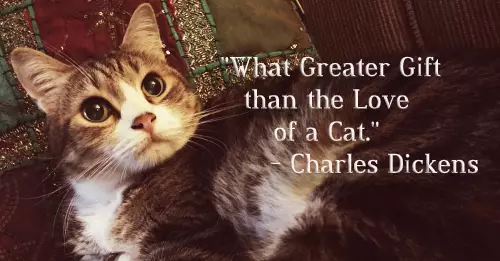Cats have been part of human civilization for millennia, bewitching us with their unique blend of independence, charm, and quirkiness. They occupy a special place not only as pets but also as cultural symbols and frequent subjects of literary expression. The feelings cats invoke in their humans range from pure joy to profound introspection, and their behavior often elicits laughter as well as contemplative musings. This piece aims to explore the dual nature of cats—both as comedic companions exhibiting a majestic aloofness and as wise creatures that inspire human thought.
Many cat owners can attest that living with a feline is an endless source of amusement. These creatures often view their humans not as caregivers but as mere extensions of their will. Renowned author Terry Pratchett humorously remarked that “in ancient times, cats were worshipped as gods; they have not forgotten this.” This illustrates the regal airs many cats adopt, strutting around their home as if they own the place.
The amusing contrast between a cat’s elegant demeanor and their often ridiculous antics feeds into this comedic narrative. Comedian Steve Martin captures this sentiment well when describing the futile endeavor of giving a cat a bath. His self-deprecating humor resonates with anyone who has had the experience of observing their cat’s rebellious antics. Moments like these serve to remind us of the shortcomings of human authority in the feline kingdom; a cat will always find a way to reclaim its independence.
Furthermore, famed author Neil Gaiman once quipped, “I would like to see anyone, prophet, king, or God, convince a thousand cats to do the same thing at the same time.” Such statements encapsulate the inherent difficulty—and humor—in attempting to manage these creatures. Their unpredictability often leaves us in stitches, reinforcing the idea that perhaps they truly are the ones in charge.
Beyond the laughter, cats also offer a wealth of insight into the human experience. Their behavior can prompt us to examine our own lives and philosophies. Author Ernest Hemingway, known for his codified relationship with cats, noted, “A cat has absolute emotional honesty,” suggesting that while humans may disguise their feelings, cats do not hesitate to express theirs. This honesty can be a lesson in authenticity—a reminder to embrace our emotions rather than suppress them.
The allure of cats extends into the realm of fascination, prompting us to consider deep philosophical questions. Willian Shakespeare famously stated that the “wisdom of cats is infinitely superior,” pointing to the notion that these creatures possess insights into life that often elude human comprehension. Their calm demeanor and apparent self-sufficiency serve as a way to reflect on our own interconnectedness and innate desires, such as the pursuit of comfort, autonomy, and joy.
Cats also appear as metaphors for various aspects of life. Charles Bukowski whimsically suggests that he would like to “sleep 20 hours a day and wait to be fed,” enticing readers to think about the liberated existence of a cat—one that appears to prioritize enjoyment and leisure above all. In a world filled with pressures and responsibilities, this simple yet profound perspective can inspire many to reevaluate their priorities.
The Legacy of Cats in Literature and Culture
Cats have undoubtedly made their mark in literature, serving as inspirations for countless expressions, both serious and lighthearted. From the mystical to the mundane, they resonate with both childlike wonder and adult conviction. Quotes encapsulating cat wisdom highlight their varied meanings, much as the works of poets like T.S. Eliot or philosophers like W.L. George emphasize different facets of feline existence.
For instance, Jean Cocteau noted, “I love cats because I enjoy my home; and little by little, they become its visible soul.” This adage reflects the emotional connections formed between cats and their owners, suggesting that they transform domestic spaces into havens of warmth and companionship. The “visible soul” becomes a fitting metaphor for the way that these creatures effortlessly enhance the atmosphere of our homes.
Moreover, literary references demonstrate the charm cats hold across cultures and eras. From the whimsical adventures of Dr. Seuss to the philosophical musings of Edgar Allan Poe, cats serve as playful yet profound symbols of existence. Their mystique allows them to inhabit the realms of both the tangible and the abstract, bridging gaps between various disciplines.
Ultimately, the relationship between humans and cats transcends mere companionship. It is a dynamic connection that weaves together laughter, introspection, and inspiration. As we celebrate quotes that encapsulate the essence of felines, we recognize that these enigmatic creatures are not just pets but teachers of vital life lessons. Whether they rule our homes or our hearts, their influence is unmistakable. Cats remind us, through comedy and contemplation, of the nuances of living—balancing joy and simplicity with complexity and emotional depth.

